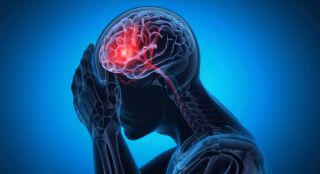
When we think of depression, we often hear about chemical imbalances in the brain involving molecules like serotonin, norepinephrine, and dopamine. But there’s a growing body of research suggesting that inflammation, which is the body’s natural immune response to stress, infection, or injury, could play a key role in the development of depression. This novel idea is called the neuroinflammation model of depression, and it may explain why depression can feel so physically exhausting and mentally debilitating.
What Is Neuroinflammation?
Inflammation is your body’s natural defense mechanism. When you have an injury, suffer a trauma, or develop an infection, your immune system releases chemicals called cytokines to fight off the problem. However, inflammation doesn’t always stay where it belongs. In neuroinflammation, these inflammatory chemicals cross into the brain and cause trouble, leading to symptoms like low mood, fatigue, and brain fog, which are classic symptoms of major depressive disorder (MDD).
Traditionally, depression has been linked to deficiencies in brain chemicals known as neurotransmitters, but scientists are now finding that chronic inflammation might be equally, if not more, important. So, let’s take a closer look at how neuroinflammation could be the missing puzzle piece in understanding depression.
How Does Inflammation Cause Depression?
Inflammation can cause depression by influencing the levels of cytokines and the functioning of microglia. Cytokines are small proteins released by the immune system to fight off infections or repair damage. But here’s the problem: In people with depression, cytokine levels are often abnormally high. Two key inflammatory cytokines, interleukin-6 (IL-6) and tumor necrosis factor-alpha (TNF-α), have been shown to contribute to depressive symptoms like fatigue, lack of motivation, and cognitive impairments such as difficulty thinking or concentrating.
For example, a large analysis of studies found that people with higher levels of IL-6 were more likely to experience severe depressive symptoms. These cytokines can cross the blood-brain barrier, a protective shield for the brain, and trigger inflammation in brain regions involved in mood and cognition.
Once inflammatory cytokines enter the brain, they activate microglia, the brain’s immune cells. Microglia are like the brain’s cleanup crew, but when they’re in overdrive, they can do more harm than good. Activated microglia release toxic substances like reactive oxygen species (ROS) and quinolinic acid, which damage brain cells and disrupt normal brain function.
Quinolinic acid overstimulates a type of brain receptor known as NMDA receptors, causing neurons to become damaged or die. Inflammation also slows the creation of new brain cells, a process known as neurogenesis. This occurs in the hippocampus, a region of the brain that plays a major role in mood regulation and memory.
Studies have found evidence of increased microglial activation in people with depression, particularly in the hippocampus and prefrontal cortex. This could explain why depression often comes with cognitive difficulties and emotional dysregulation.

How Stress and the Immune System Interact
One of the biggest triggers of inflammation is chronic stress. When we’re under stress, our body activates the hypothalamic-pituitary-adrenal (HPA) axis, which stimulates the release of the hormone cortisol. In small doses, cortisol helps fight inflammation, but when stress becomes chronic, something strange happens. The body becomes resistant to cortisol, so it no longer suppresses inflammation effectively. Instead, inflammatory cytokines like IL-6 and TNF-α increase, creating a vicious cycle of stress and inflammation. This is why stress can feel both emotionally and physically draining. The body’s immune response essentially becomes overactive, leading to symptoms of depression.
The Link Between Inflammation and Other Health Problems
Another fascinating aspect of the neuroinflammation model is how it connects depression to other health conditions. For example, people with chronic inflammatory conditions like autoimmune disorders, obesity, and heart disease are at a much higher risk of developing depression. But why do these conditions increase depression?
One reason may be that chronic medical conditions trigger persistent inflammation. Inflammatory cytokines communicate with the brain, causing changes in mood and behavior. The result is a cycle where physical illness worsens depression, and depression worsens physical health. This highlights the importance of treating both the mind and the body when it comes to depression.
Can Inflammation Be Treated to Help Depression?
The good news is that understanding the role of inflammation in depression opens up new opportunities for treatment. While traditional antidepressants target neurotransmitters like serotonin, norepinephrine, and dopamine, new research suggests that reducing inflammation may also help improve depressive symptoms.
Anti-inflammatory medications like NSAIDs (e.g., ibuprofen) and cytokine inhibitors have shown promise in reducing depressive symptoms, especially in people with elevated inflammation. For example, a study using infliximab, a TNF-α inhibitor, found that it improved mood in patients with high levels of inflammation. However, these medicines are also associated with significant risks.
Lifestyle changes that reduce inflammation can also help manage depression. For example, regular physical activity lowers inflammatory markers and boosts mood. Also, an anti-inflammatory diet may help. Foods rich in omega-3 fatty acids (like fish), fruits, and vegetables can reduce inflammation and improve mental health. Additionally, stress reduction techniques such as mindfulness, meditation, and good sleep hygiene help calm the HPA axis and lower inflammation. Finally, supplements with anti-inflammatory properties can help alleviate depressive symptoms, further supporting the inflammation-depression link.
The neuroinflammation model of depression is changing the way scientists understand mental health. It shows that depression isn’t just a disorder of the brain; it’s also a disorder of the immune system. While more research is needed to fully understand the connection, this model highlights the importance of an integrative approach to treatment that addresses both inflammation and mood regulation. For people struggling with depression, this research is hopeful. It means that therapies targeting inflammation, whether through medications, diet, or lifestyle changes, could offer new pathways to recovery.
The Takeaway
If you’ve ever felt like depression is more than just a “bad mood,” you’re not alone. The neuroinflammation model reveals that inflammation can affect the brain, leading to fatigue, low energy, and difficulty thinking. This new understanding opens the door to innovative treatments and highlights the importance of caring for your whole body, not just your brain. By targeting inflammation, we might be able to tackle depression more effectively than ever before.
So, the next time you hear someone say depression is all in your head, you’ll know thaf it may actually be in your immune system. This understanding provides hope for people battling depression by suggesting new treatments that may soon provide greater relief.
